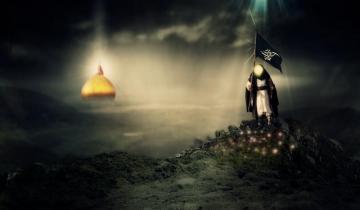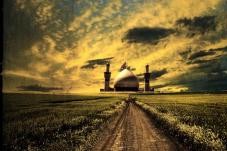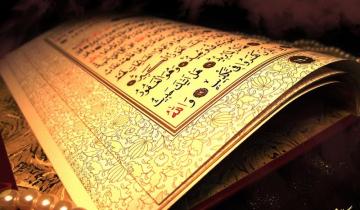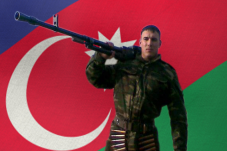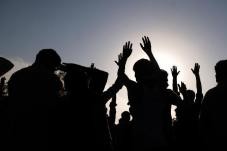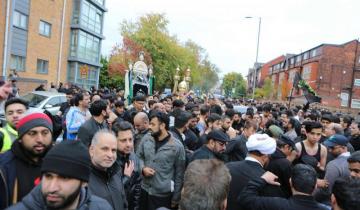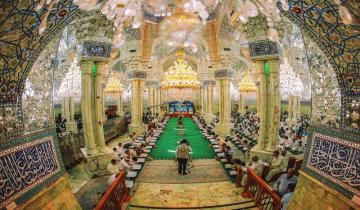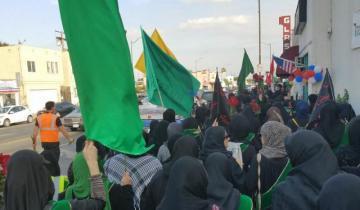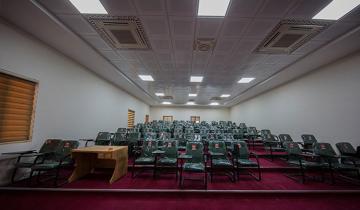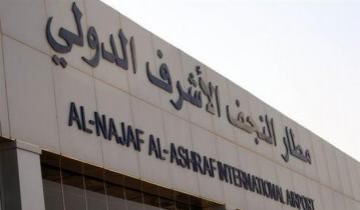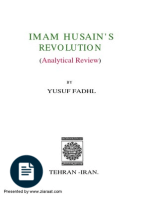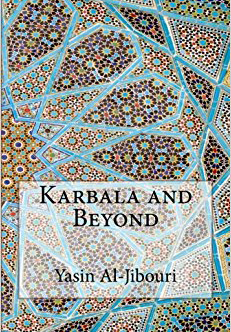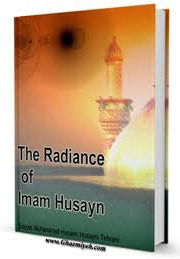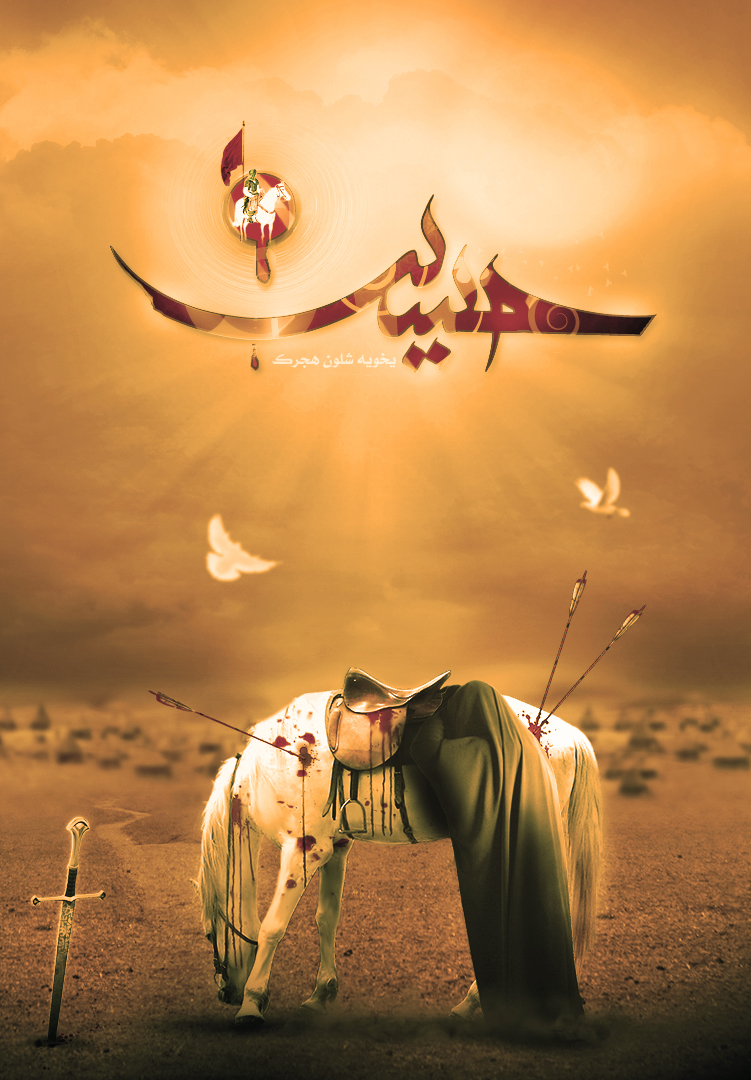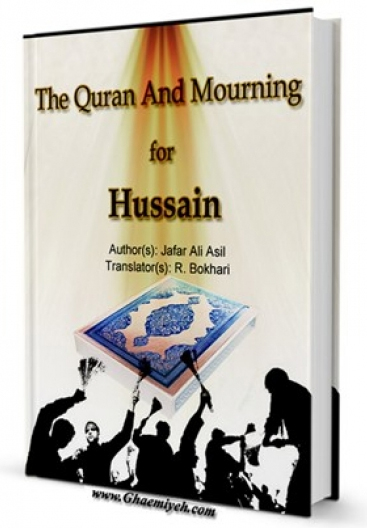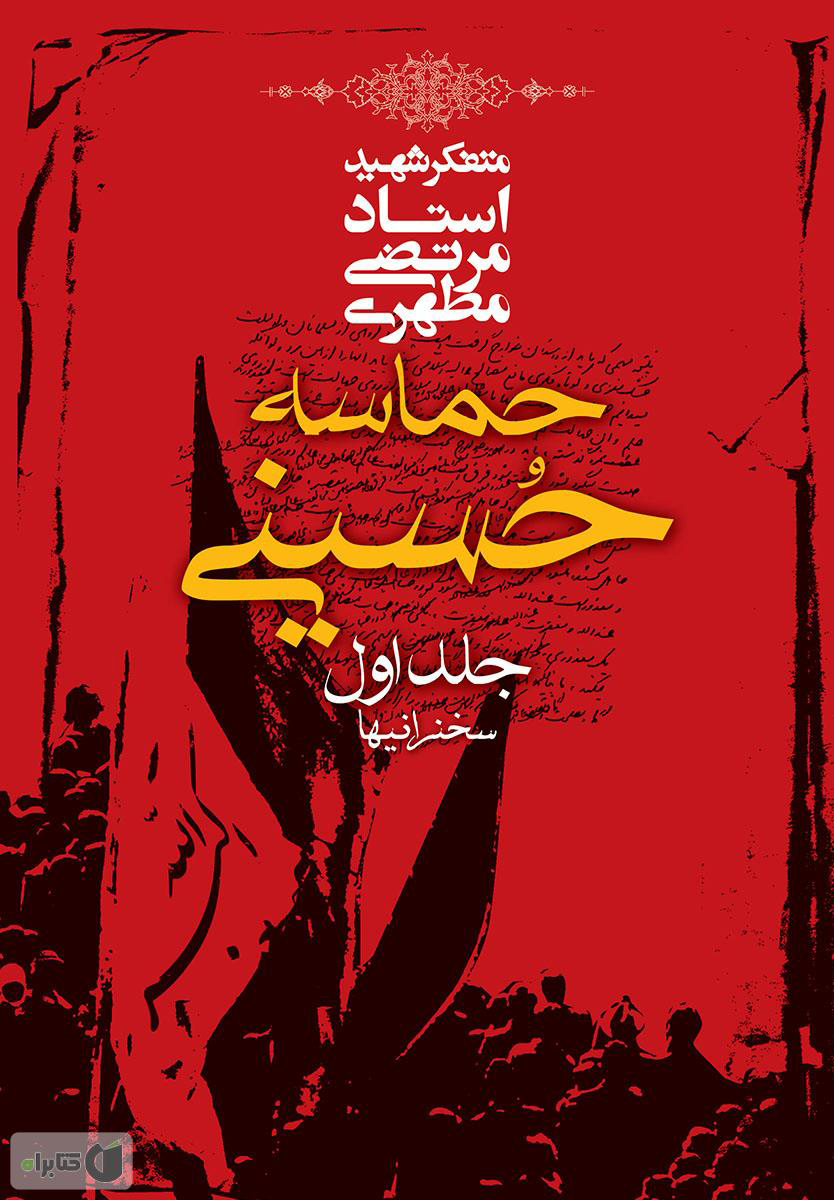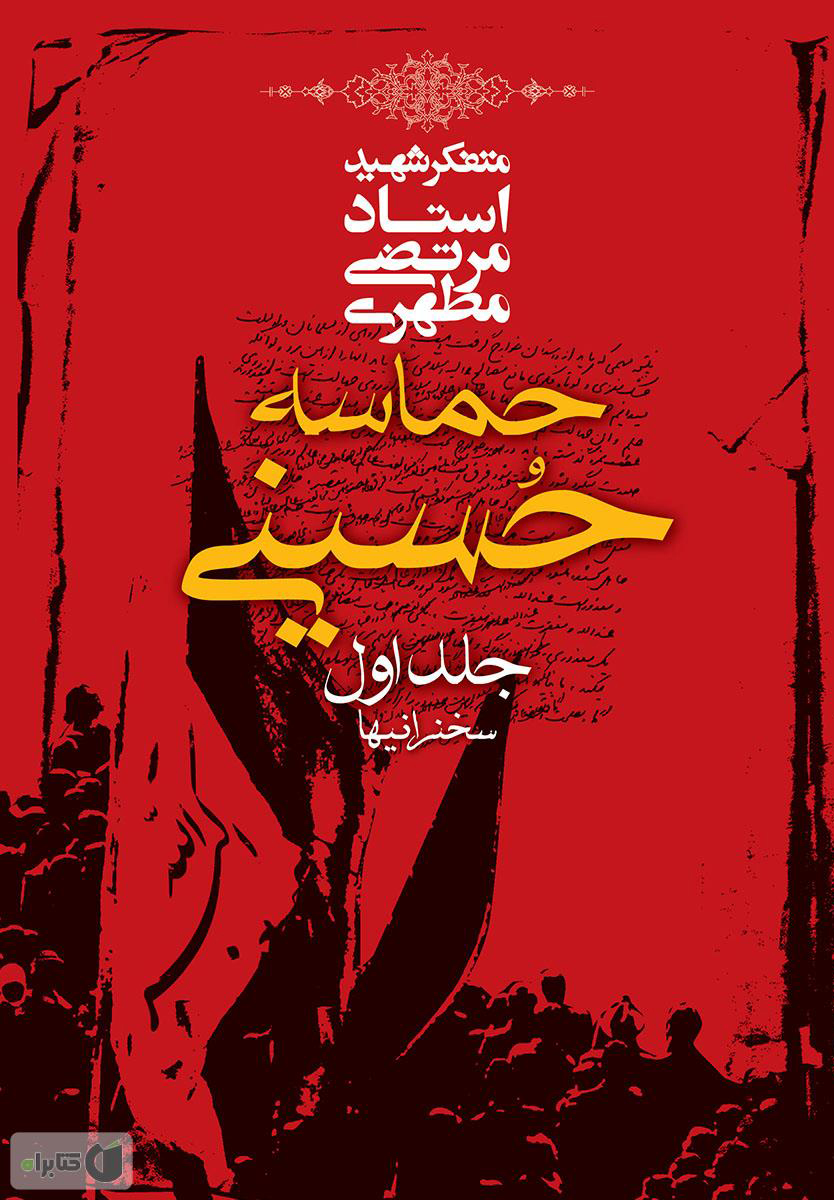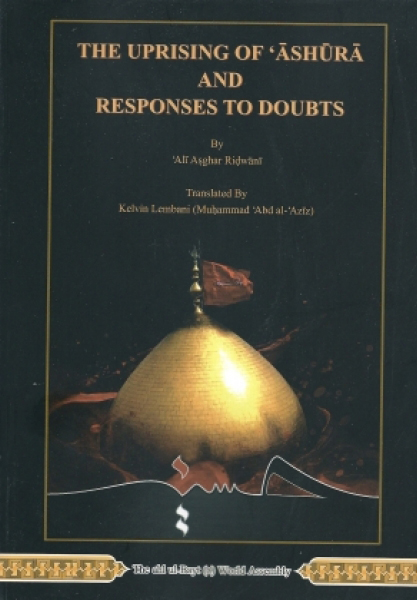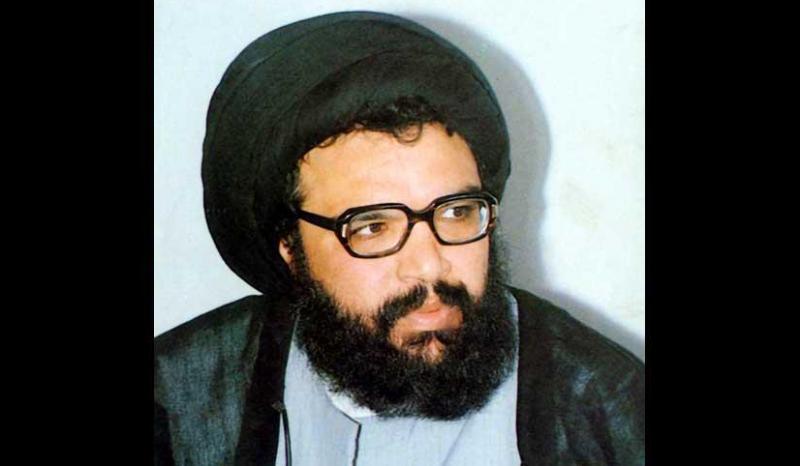
Abbas al Moussawi was an influential Lebanese Shia cleric, co-founder and Secretary General of Hezbollah. He was martyred by the Israel Defense Forces in 1992.
Moussawi was born into a Shia family in the village of Al-Nabi Shayth in the Beqaa Valley in Lebanon in 26 October 1952. Sayyed Abbas Moussawi's mother had a dream one night: A baby given to her on the hands of the Imam Abil Fadel Al Abbas, brother to Imam Hussain (as). The baby was presented as a gift from the Prophet Mohammad's household "Ahlul Beit". "This child has been blessed by us," Abbas says to the mother. And so, when the mother gave birth to her boy, she named him Abbas.
Sayyed Abbas was a descendent of the Prophet Hazrat Mohammad (saaw), having pure Hashemi (belonging to the Prophet) blood in his veins from both mother and father. He wasn't only Hashemi because of the bloodline of his mother and father, but because he was a prominent letter and a daring, immortal word in the book of the Hashemi bloodline. He was Hashemi in nature that manifested in most of his tendencies, approaches and attitudes.
From his childhood he was affectionate with people, fearless in expressing his views; and the pioneering aspect of his personality made him prominent among his peers.
He was the committed believer, a young man who inspired his spirit from the holy Quran, deeply affected by the tragedy of Karbala.
He joined the rebels of the Palestinian revolution when he was ten years old, attending numerous military training camps. Then the revolution became an important aspect of his life. He was even wounded in one operation with the revolution comrades, having a leg broken in one of the military training camps to be rushed to the Makased Islamic Hospital. They failed to deter him; it made him even more attached to the soul of sacrifice.
Sayyed Abbas realized that he had chosen the thorniest path, yet had the willpower, determination, and the zeal of a committed conscious person; He transformed his deeply-felt revolutionary ideology into doctrine of firm, comprehensive, pious struggle.
One of the most prominent points in the life of our martyr was his meeting with Imam Musa Sadr in 1968. Sayyed Sadr realized back then that he was in the presence of a unique character.
Sayyed Abbas Moussawi wore the turban (the dress-code for Muslim religious men) at the age of sixteen after studying at the Hawzah (religious school) in Tyre. He then traveled to Iraq to continue his studies as a student of the supreme leader, martyr Sayyed Muhammad Baqir Sadr in the holy city of Najaf. Noteworthy is the fact that Sayyed Muhammad Baqir Sadr repeatedly said about Sayyed Abbas, "Abbas is a precious part of me".
He spent eight years studying theology in a religious school in Najaf, Iraq, where he was deeply influenced by the views of Iranian Ruhollah Khomeini.
Sayyed Abbas returned to Lebanon in 1978 with a mission: the revival of religion, fighting oppression everywhere and anywhere.
Sayyed Abbas became the leader of the school of Islamic studies in "Baalbek".
After a while, the school opened its doors to the revolutionary guards who came to Lebanon through a special command from Imam Khomeini to aid the Lebanese people, and to spread the blessed revolution principles so that a world could be built based on respectable principles, and to mobilize people against the Zionist regime and the international tyrannical powers.
In April 1980, Sayyed Mohammed Baker Sader was assassinated right after he had sent a few letters to Sayyed Abbas. Moussawi had become Sader's deputy in Lebanon, in the meantime.
The martyrdom of Sayyed Sader inspired and increased the determination of Sayyed Abbas who, in turn, played an important role in the uprising of the terrified people, encouraging them and repeating to them the words of martyr Sayyed Sader, "The Iraqi Baath party fenced in the Iraqi people with a wall of fear, but I will break through this wall with my blood...".
In 1979, Sayyed Abbas strived to establish an association of Islamic clerics to congregate in Bekaa.
Al-Moussawi returned to Lebanon in 1978. Along with Subhi al Tufayli he spearheaded the formation of Hezbollah movement in the Beqaa Valley in 1982, one of the three major areas of Shia population in Lebanon. From 1983 to 1985 he is reported to have served as operational head of the Hezbollah Special Security Apparatus. From late 1985 until April 1988 he was head of Hezbollah's military wing, the Islamic Resistance.
Moussawi lived the wounds of Palestine and the sufferings of its people.
And when Imam Khomeini called for the commemoration of Al Quds day, Sayyed Abbas lead the demonstration in his military uniform. And when the enemy tried to break up the union between the people of the south and the Palestinians, Sayyed Abbas strived in all his might to bridge the gap, accusing "Israel" and its agents of causing the rivalry.
In 1991, The Hezbollah had entered a new era with the end of both the Iran–Iraq War and Lebanese Civil War. Sayyed Abbas was elected as Secretary General of Hizbullah in May 1991. His eminence considered this selection an obligation, not prestige. His only concern was that it might keep him away from the concerns of the Mujahideen. When the crowds came to congratulate him, he told them: "Console me, and don't congratulate me, for I always look forward to being among the fighters and Mujahideen".
Al Moussawi also promised to "intensify (Hezbollah) military, political and popular action in order to undermine the peace-talks.
On 16 February 1992, Israeli Apache helicopters fired missiles at the motorcade of al Moussawi in southern Lebanon, killing al Moussawi, his wife, his five-year-old son, and four others. In retaliation, the Islamic Jihad Organization carried out the Israeli Embassy attack in Buenos Aires. After the attack, the Islamic Jihad Organization declared that it was carried out for the revenge of the martyr infant Hussein, al Musawi's five-year-old son, who had been killed with his father.
Despite the short period that he had spent being a secretary general, a period not exceeding nine months, which ended with his great martyrdom, he was able to make many breakthroughs on numerous social, national, political, educational and informational levels.
He worked day and night in order to raise righteousness. He also participated in many conferences, festivals and political, social and cultural meetings.
Resistance was the ultimate goal of the martyr "Sayyed" with the pious cloak, and the divine message under the banner of struggle.
Sayyed Abbas considered the resistance a necessity to liberate the land and its people from the tyrannical jaws of "Israel".
During the course of his life, Sayyed Abbas always repeated that the resistance is the title of our honor, dignity and wealth, and is, therefore, our basic fortress to withstand oppression.
Al Musawi was succeeded as Secretary General of Hezbollah by Sayyed Hassan Nasrallah.
SOURCES:
1. https://en.wikipedia.org/wiki/Abbas_al-Musawi
2. https://english.alahednews.com.lb/essaydetails.php?eid=10174&cid=364#.WkdzUMsyr58
-
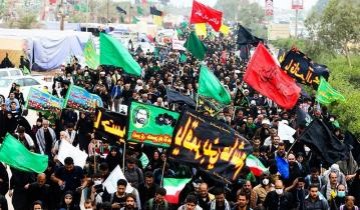 Arbaeen 2017: Pilgrims Flocking to Karbala for Arbaeen (PHOTOS)
Arbaeen 2017: Pilgrims Flocking to Karbala for Arbaeen (PHOTOS)
-
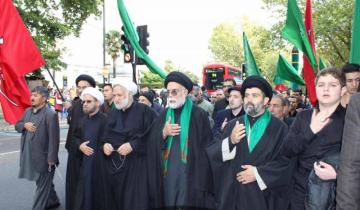 Ashura 2016: The annual Ashura day procession in London (PHOTOS)
Ashura 2016: The annual Ashura day procession in London (PHOTOS)
-
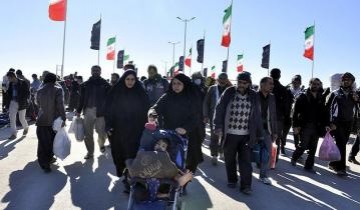 Arbaeen 2016: World Shiite Muslims Commemorate Arbaeen (PHOTOS)
Arbaeen 2016: World Shiite Muslims Commemorate Arbaeen (PHOTOS)
-
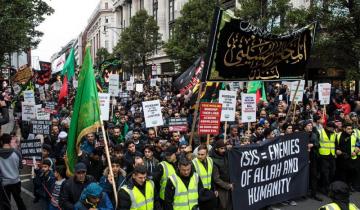 Ashura 2017: Thousands of Muslims march on Ashura day in London (PHOTOS)
Ashura 2017: Thousands of Muslims march on Ashura day in London (PHOTOS)
-
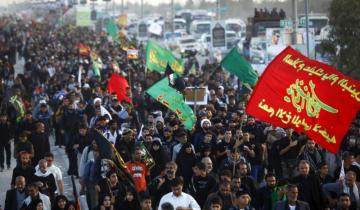 Arbaeen 2015: Millions of pilgrims throng Iraq's Karbala (PHOTOS)
Arbaeen 2015: Millions of pilgrims throng Iraq's Karbala (PHOTOS)
 Library
Library 






